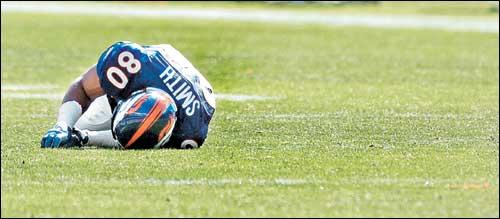
Most who follow American football have heard of the supposed link between NFL careers, head trauma, and cognitive disorders. Repeated studies have connected the dots, and we've touched on the subject more than once.
The NFL has long deflected the issue despite claims to the contrary, but its own newly released study brings the matter one step closer to established science, confirming a statistical correlation between pro football, concussions and cognitive decline. The league looks to downplay the study's results, but its underlying facts are no longer controversial. The matter now at hand: how will the NFL respond?
The study isn't perfect. It was conducted by phone, with researchers from the University of Michigan interviewing more than 1,000 Americans who'd played at least three seasons in the NFL. The fact that the league itself commissioned the study is encouraging, but its statistics are anything but. 6.1% of former players aged 50 and older reportedly received dementia diagnoses - 5 times the national average. More alarmingly, the dementia rate among those aged 30 to 49 was 1.9%, nearly 20 times higher than that of the general public. The NFL highlights the fact that the reported diagnoses were not made in a clinical setting by university researchers, but the fact that independent doctors diagnosed these players does little to compromise the study's integrity. According to testimony by the wives and family members of former footballers, these conditions are very real and debilitating in many cases. The NFL still claims that they need to finish their own independent studies, but that work will take place over a period of several years.
Football isn't the only sport linked to cognitive problems, and the NFL isn't necessarily in the wrong. It's true that many who sign pro contracts know of the risks inherent in their profession before they begin, and one can understand why they'd face these risks given their ridiculously high salaries. Logic suggests that head injuries will occur more often among those who play contact-heavy sports for a living. A clear majority of football players experience traumatic head injuries at some point in their careers, and that's been the case for some time. More significant is the fact that tens of thousands of American high school football players will also suffer concussions this year. They may very well develop preliminary cognitive disorders long before they're aware. Safety must be paramount in youth and high-school leagues.
The NFL already works with the most advanced sports technologies in the world. Younger players unfortunately have no access to such equipment or treament. But they must be made aware of the risks, and a public health campaign sponsored by the NFL would at least mark a step in the right direction. Will the game itself change? Not likely. But technology can certainly make it safer. And an extremely lucrative organization that relies on advanced medicine as regularly as the NFL does can no longer claim ignorance on this issue.